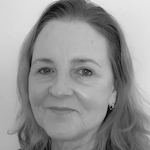In recent years, there has been an explosion in the number of children and young people who diagnose themselves as gender dysphoric, or trans. In the UK, and worldwide, there is a growing tendency to refer them on to ‘specialist’ gender services almost as soon as they express any confusion or distress about their biological sex or gender identity. Due to the rapidly rising numbers and various pressures on the system, patients are increasingly likely to be offered life-altering medication and/or surgical treatments, often with little exploration of their emotional world.
As so little is yet known or understood regarding this increase in gender incongruent patients, it seems precipitous to proceed onto physical treatments before any assessment work is undertaken. Many who present as gender dysphoric have complex needs with comorbid problems such as autism, histories of abuse or trauma, social phobias, depression, eating disorders, and other mental health symptoms. Therefore, all aspects of the individual’s life deserve thorough assessment and therapeutic work.
This book is aimed primarily at clinicians working in the field to provide a model for understanding, assessing, and treating gender dysphoria. The model uses a psychoanalytic framework to help explain disturbed states of mind and how psychic defences can be enlisted unconsciously to avoid overwhelming psychic pain. This offers professionals a way of trying to think with, and offer understanding to, their trans identifying clients. Clinical examples are given to illustrate these processes and promote the understanding of transgender children, adolescents, and young people and their internal worlds, their thinking, and their interpersonal relationships. As well as clinical exploration and understanding, the book includes an overview of the current political, social, and clinical environments which have all impacted on the clinical care of trans identifying individuals.
As well as professional and trainee clinicians, this book might also prove useful to parents, other professionals, and possibly the gender dysphoric person too.





 Susan Evans is a psychoanalytic psychotherapist trained at the former Lincoln Centre for Psychotherapy. Retired after nearly 40 years in the NHS, she now has a private practice in South East London. She is a member of the British Psychotherapy Foundation, the London Psychoanalytic Psychotherapy Service, and is registered with the British Psychoanalytic Council (BCP). She trained as a State Registered Nurse in 1977, then trained as an RMN and worked within many mental health specialist services including addictions, eating disorders, and in a specialist mother and baby service, which won the Sir Graham Day Award for NHS service development (1999).
Susan Evans is a psychoanalytic psychotherapist trained at the former Lincoln Centre for Psychotherapy. Retired after nearly 40 years in the NHS, she now has a private practice in South East London. She is a member of the British Psychotherapy Foundation, the London Psychoanalytic Psychotherapy Service, and is registered with the British Psychoanalytic Council (BCP). She trained as a State Registered Nurse in 1977, then trained as an RMN and worked within many mental health specialist services including addictions, eating disorders, and in a specialist mother and baby service, which won the Sir Graham Day Award for NHS service development (1999). Marcus Evans is a psychoanalyst and was an adult psychotherapist at the Tavistock & Portman NHS Foundation Trust with 40 years’ experience in mental health, originally training as a psychiatric nurse. After qualifying as a psychotherapist at the Tavistock & Portman NHS Trust, he took up a post as head of the nursing discipline. Marcus was Associate Clinical Director of the Adult & Adolescent departments between 2011 and 2015. Marcus has designed, developed, and taught outreach courses for front line staff in various settings for the last 25 years. He was also one of the founding members of the Fitzjohn’s Service for the treatment of patients with severe and enduring mental health conditions and/or personality disorder in the adult department. He has written and taught extensively and is author of Making Room for Madness in Mental Health: The Psychoanalytic Understanding of Psychotic Communications, published by Karnac in the Tavistock Clinic series.
Marcus Evans is a psychoanalyst and was an adult psychotherapist at the Tavistock & Portman NHS Foundation Trust with 40 years’ experience in mental health, originally training as a psychiatric nurse. After qualifying as a psychotherapist at the Tavistock & Portman NHS Trust, he took up a post as head of the nursing discipline. Marcus was Associate Clinical Director of the Adult & Adolescent departments between 2011 and 2015. Marcus has designed, developed, and taught outreach courses for front line staff in various settings for the last 25 years. He was also one of the founding members of the Fitzjohn’s Service for the treatment of patients with severe and enduring mental health conditions and/or personality disorder in the adult department. He has written and taught extensively and is author of Making Room for Madness in Mental Health: The Psychoanalytic Understanding of Psychotic Communications, published by Karnac in the Tavistock Clinic series.
Abigail Shrier, journalist and author of ‘Irreversible Damage: Teenage Girls and the Transgender Craze’ –
This book is as thoughtful as it is necessary. Every responsible clinician and therapist who treats children and adolescents must read it – and read it carefully.
Donald Campbell, past President of the British Psychoanalytical Society and former Secretary General of the International Psychoanalytical Association –
I highly recommend this sensitive and timely book to laypersons and professionals who are interested in learning about the complex, controversial, and contemporary subject of gender dysphoria. The authors, Susan and Marcus Evans, are open, compassionate, non-judgemental, and able to tolerate uncertainty in their understanding of those who experience gender dysphoria, are transitioning, or detransitioning. Their psychoanalytically oriented therapeutic model takes into account the individual’s development, family, culture, and political environment. I think the reader will especially appreciate the additional attention paid to the response of adolescents, emotionally unstable personality disordered people, and suicidal individuals to gender dysphoria.
Roberto D’Angelo, Training and Supervising Analyst, Institute of Contemporary Psychoanalysis, Los Angeles and President of the Society for Evidence-Based Gender Medicine –
Gender dysphoria is increasingly being seen as a part of the spectrum of human diversity. This has resulted in a profoundly reductionistic and decontextualised clinical approach to gender distress. The authors draw on their extensive clinical experience to illustrate how gender dysphoria cannot be understood without understanding the developmental and relational contexts within which it arises. Their detailed case examples document the unique psychic landscapes of people suffering gender dysphoria, illuminating how the ubiquitous “born in the wrong body” conceptualisation can leave vast areas of historical and current lived experience unaddressed. The authors utilise a psychoanalytic lens to understand the experience of both patient and therapist in therapeutic work with gender dysphoria, in a way that is both accessible and insightful. This will be an invaluable reference for those seeking to go beyond the surface to work at depth with gender dysphoria. This work is remarkable for its bravery in presenting a perspective on gender dysphoria that is increasingly being excluded from social and clinical discourse.
Dr Ronald Britton, FRCPsych, Distinguished Fellow, British Psychoanalytical Society –
This clear, excellent, clinically based account is very timely. It will help those who want to find their way through the confusing and often contentious writings on the subject of gender identity. It is well founded on experience of helping and working with people who do not feel at home in their bodies, particularly in regard to their sexual identity. They bring to the subject an unusual amount of clinical experience of this specialised psychological area. I strongly recommend it to those in the psychological, medical, and social fields, as well as to anyone who wants an informed account of a confused and confusing subject.
Debbie Hayton, RT.com –
‘This book needs to be read.
Clearly, it should be of interest to professionals working in the field. …
Parents and teachers of gender dysphoric children will recognise the behaviours that the authors describe and explain. If we are to help young people in distress, we need to know why they might be distressed. But this book is accessible to a lay readership and needs to be read by a lay readership. Society has a responsibility to children, and we all need to understand what is happening to young people …’
Read the full review here.
Amazon review: Isabel, July 2021 –
5/5 stars: Fascinating and thoughtful
A thoughtful and compassionate book exploring a difficult and politically contentious area. Although it is aimed at professionals, and includes references to psychological theory that I am unfamiliar with, it is also accessible to a non-professional reader. It explains how gender dysphoria often sits within a wider set of mental health problems for an individual, and why it should not be addressed in isolation.
Amazon review: Chris, May 2021 –
5/5 stars: ‘Balanced’, ‘Sensible’, ‘Needed’ – three words to describe this book.
I’ve been a psychotherapist for twenty years and so always on the look out for well-written literature that provides useful therapeutic models that could be used to benefit the client. Though with the sensitivity surrounding gender dysphoria I was a bit hesitant purchasing this book.
However, I’m pleased I did. I found this book was written containing informative case examples including step by step breakdowns and case discussions from a psychoanalytical perspective. Along with discussions on the wider topics surrounding gender dysphoria including societal and cultural trends, child development and co-morbidities.
I would recommend this book to therapists (and those interested) that need a balanced and sensible resource to help navigate the topic of gender dysphoria.
Amazon review: User GB, July 2021 –
5/5 stars: A critically important book – on par with trans-forward Finland
Wow – this book is chock full of important information on how to care for and compassionately treat young people with gender dysphoria, on par with what is happening in trans-forward Finland, which as of Summer 2020 is prioritizing ethical psychotherapy throughout the country for all kids under age 18. We need all options on the table to prevent people from becoming lifelong medical patients or enduring irreversible drugs or surgeries that they may later regret. The authors here are not saying that no one would benefit from medical transition, but that we need to be balanced and impartial to try to determine who will benefit most, given all the known (and unknown) side effects.
Amazon review: Brooklyn Parent, June 2021 –
4/5 stars: Measured and thoughtful psychoanalytic approach
Very useful counterweight to the “affirmative model” guidance – urging a more traditional approach to gender dysphoria: listening to the patient and uncovering the issues that have led them to reject their bodies.
Amazon review: Joanne, July 2021 –
5/5 stars: Excellent and important book
There is a lot unknown about how to treat gender dysphoria, although it is known most with childhood onset grow out of it. The older adolescent onset young people are an entirely new cohort.
Given the physical dangers of the lifetime hormones and surgeries, and lack of moderate or high quality studies of accompanying mental health outcomes, it is very good to understand how at least some people find explorative psychotherapy alone helps them resolve their gender distress.
This book is desperately needed to help people with this painful condition. I hope many therapists read it and add this knowledge to their tools.
Helen Lowe, registered member of BACP – BACP Healthcare Counselling and Psychotherapy Journal Jan 2022 –
‘Gender Dysphoria is a thoughtful and timely contribution to the current controversy around gender dysphoria, how it is thought about and how it is treated when help is sought. […] The book would clearly be of interest to anyone working with this client group, but I also found it a valuable resource in terms of thinking about the adolescent state of mind. […] Gender Dysphoria is an important book and a valuable contribution to the current debate. The book would grace the shelf of any trainee or practising therapist.’
Hessel Willemsen, International Journal of Forensic Psychotherapy, 4:2 –
In this timely, necessary book, Susan and Marcus Evans provide key insights into what adequate psychotherapeutic explorations of gender dysphoria should look like […] This book is a must-read not only for those working with gender dysphoria but also those who wish to expand their thinking on this cutting-edge work when dealing with the unbearableness of catastrophic anxiety.
Alan Colam, International Journal of Psychoanalysis, 2023, (104)(6):1139-1142 –
‘What distinguishes the transgender from the gender dysphoric? Research in this area is not as advanced as we would like, and there is a dearth of good data. While this book does not reflect on gender dysphoric individuals for whom transition may be the right decision and have a positive outcome, it does add a great deal to the argument that careful thought is vital in the process of considering such a move. Transition may, or may not, be in the best interests of the individual. But maintaining a position of neutrality and enquiring curiosity, neither pro- nor anti-transition but pro-thought, is a point repeatedly made by the authors.’